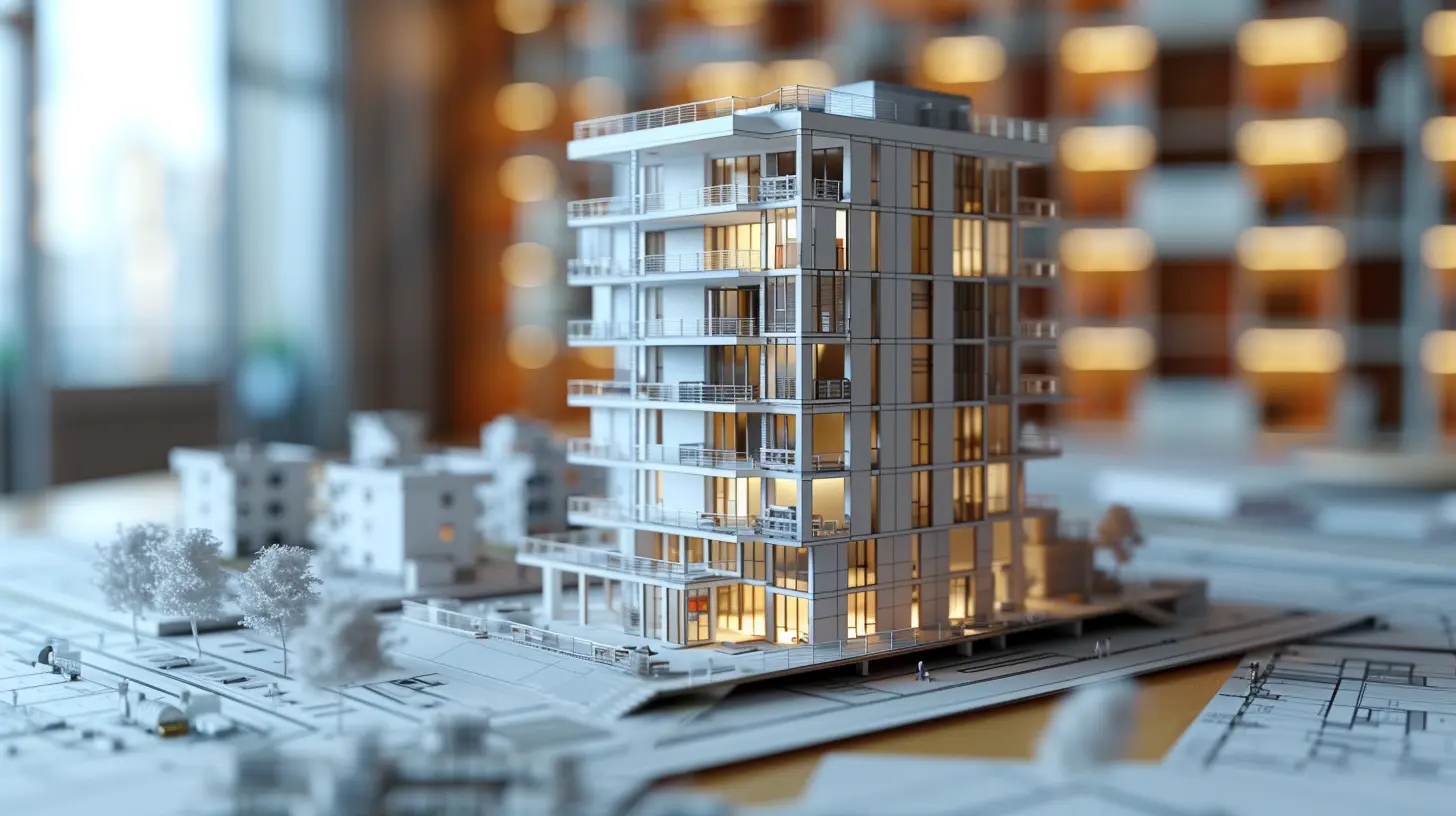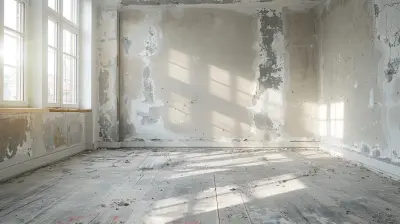Can Zoning Regulations Affect Your Property Investment?
19 August 2025
If you’ve ever dipped your toes into the real estate waters, you’ve probably heard something about zoning regulations. Maybe you brushed it off thinking, “That sounds like a city planner's problem.” But hold up a second. If you're even considering investing in property—whether it's a cute little fixer-upper, a swanky duplex, or an empty lot you dream of turning into something big—zoning laws definitely matter.
Not to sound dramatic, but they can make or break your investment. For real.
In this guide, we're breaking down how zoning regulations affect your property investment (yes, yours). We’ll keep it fun, light, and jargon-free. So grab your favorite beverage and let’s dive into the world of land-use laws without the legalese.
What are Zoning Regulations Anyway?
Let’s kick things off simple.Zoning regulations are local laws that dictate how a piece of land can be used. Kind of like the rulebook of your neighborhood, but written by the city or local government. There are zones for residential homes, commercial buildings, industrial use, agriculture, and sometimes very specific mixes of these.
Imagine you’re playing Monopoly, and someone tries to build a factory on Boardwalk. You’d probably flip the board, right? That’s basically what zoning laws prevent in real life.
Types of Zoning: A Quick Rundown
Before you start wondering if this is going to get technical, don't worry—we’re keeping it breezy.Here's a simplified look at some common zoning categories:
- Residential Zoning (R): This is where houses live. Single-family homes, duplexes, townhomes, and apartments.
- Commercial Zoning (C): Got a business? You'll need commercial zoning. Think restaurants, retail stores, and office spaces.
- Industrial Zoning (I): Reserved for heavy-duty operations like manufacturing plants or warehouses. Not the place for a cozy Airbnb.
- Agricultural Zoning (A): Suitable for farming, vineyards, livestock—you get the idea.
- Mixed-Use Zoning: A perfect blend of the above. Think of a building with shops on the ground floor and apartments upstairs.
Got the vibe? Good. Now let’s talk about why this matters for your money.
So, Can Zoning Regulations Affect Your Property Investment?
Short answer: Absolutely. Long answer: Buckle up, we're going in.Zoning rules can have all kinds of ripple effects, from property value to what kind of renters or buyers you attract. Here's how.
1. What You Can (and Can't) Build
Say you just bought a sweet little patch of land in a dreamy suburb. You’re thinking: “Coffee shop with a rooftop patio.” Cool idea, except, oops—it’s zoned Residential.Now what?
Zoning dictates what kind of structures you’re allowed to build. If you wanted that café but your land isn’t zoned Commercial, you’ll hit a wall faster than you can say "building permit." You might need a costly and lengthy rezoning process, and even then, no guarantees it’ll be approved.
So yeah, big impact.
2. Property Values: Zoning Can Boost or Bust Them
Believe it or not, good zoning can increase your property’s value. If your property is in a mixed-use zone, for example, it opens the door to both commercial and residential buyers. That creates demand, and demand? That means ka-ching.On the flip side, properties next to industrial zones might not be everyone’s cup of tea. Imagine buying what you thought was your dream home, only to find out a warehouse is going up next door. Not exactly relaxing.
3. Rental Income Potential
If you're in the landlord or Airbnb game, zoning is huge.Some cities limit short-term rentals—or ban them outright—in certain zones. Others might require special permits. The rules can get murky, quick.
You don’t want to buy what you think is an income-generating machine only to find out you can't rent it out the way you planned.
Always check local zoning restrictions and rental ordinances. It's just smart investing.
4. Risk of Non-Compliance = Fines and Frustration
Ever heard of a “code violation”? Yeah, that’s when you're doing something zoning says you shouldn't.If you start a home business in an area that’s strictly residential, or build more units than permitted, you could end up with hefty fines—or worse, a forced shut down.
Trust me, no one wants to be that person crying over a cease-and-desist letter.
5. Future Development Plans
Here’s a pro tip: Get nosy.Check your local zoning board or planning commission’s website. They usually have future development projects listed. Maybe a new transit station is coming, which will increase demand in the area. Or maybe a waste facility is going up—less exciting, and possibly value-draining.
Knowing what’s coming down the pipeline helps you make smart, future-forward decisions.
Rezoning: Can You Change the Zone?
Let’s say you’ve got a golden idea. You love this property, but the zoning just doesn’t match your vision. Can you change it?In some cases, yes. It’s called a “rezoning request.”
You submit a formal request to the city or municipality, usually along with a stack of paperwork and a solid argument for why your proposed use would benefit the community.
But fair warning—it’s not always easy. It involves hearings, public notice, potential objections from neighbors… It can feel like trying to convince a bouncer to let you into VIP. Be prepared for a “no”—and have a backup plan.
Variances: The Loophole Lane
Sometimes, you don’t need to go full-on rezoning. A variance lets you wiggle around the rules a bit—legally.Let’s say you want to build a fence that's taller than zoning allows. A variance can grant you permission without changing the entire zoning designation.
It’s a bit like asking your teacher for an extension on homework. You're not changing the assignment—you just need a little flexibility.
The Hidden Language of Zoning Maps
Sounds nerdy, but zoning maps are your best friend.These maps show how different parts of a city or town are zoned. They’re color-coded and come with codes and numbers that may seem confusing at first. But a little research goes a long way.
It’s like decoding a treasure map—except instead of gold, you're finding places with high investment potential.
Zoning’s Role in Gentrification and Urban Growth
Okay, let’s get a bit deeper but still digestible.Zoning plays a big role in who lives where and how cities grow. Sometimes, changing zoning laws in a neighborhood can lead to gentrification—that’s when wealthier folks move in, property values go up, and long-time residents may get priced out.
This has big implications. As an investor, being aware of this helps you balance profit with social responsibility. Smart, ethical investing? That’s the name of the game.
Tips for Investors: Navigating Zoning Like a Pro
Here’s your cheat sheet:✅ Always Check Zoning Before You Buy
Whether it’s land, a house, or a building—know the zoning. Ask your agent. Look it up. Do not skip this.🧭 Talk to the Planning Department
They’re not scary, I promise. Most city planning offices will happily walk you through what’s allowed and what’s not.💼 Consult a Zoning Attorney or Real Estate Professional
They’re like your zoning translators. Especially helpful if you’re planning something complicated.📄 Look at the Future Use Plan
Cities often have a “Comprehensive Plan” predicting future developments. Super helpful intel.🤓 Read the Fine Print
Sometimes, a property might be "non-conforming," grandfathered into old zoning rules. Know what you’re dealing with before signing anything.Final Thoughts (a.k.a. The Bottom Line)
Zoning isn’t just bureaucratic fluff. It’s critical intel for anyone serious about property investment. Whether you're a newbie investor mapping out your first flip or an experienced mogul expanding your rental empire, zoning laws can either open doors—or slam them shut.Think of zoning as the secret ingredient to a successful real estate recipe. Ignore it, and your soufflé might fall flat. But pay attention? That’s where the magic happens.
So go ahead—use zoning to your advantage. Ask questions. Read maps. Get curious.
After all, the more you know, the better you grow your wealth.
all images in this post were generated using AI tools
Category:
Zoning RegulationsAuthor:

Travis Lozano
Discussion
rate this article
1 comments
Mason Larsen
Zoning regulations: the invisible fence of real estate! They can turn your dream investment into a pumpkin at midnight, or a golden goose. Choose wisely, dear investors!
August 26, 2025 at 3:31 AM

Travis Lozano
Absolutely! Zoning regulations can significantly impact property value and investment potential, making it essential for investors to thoroughly research and understand local zoning laws before diving in.


